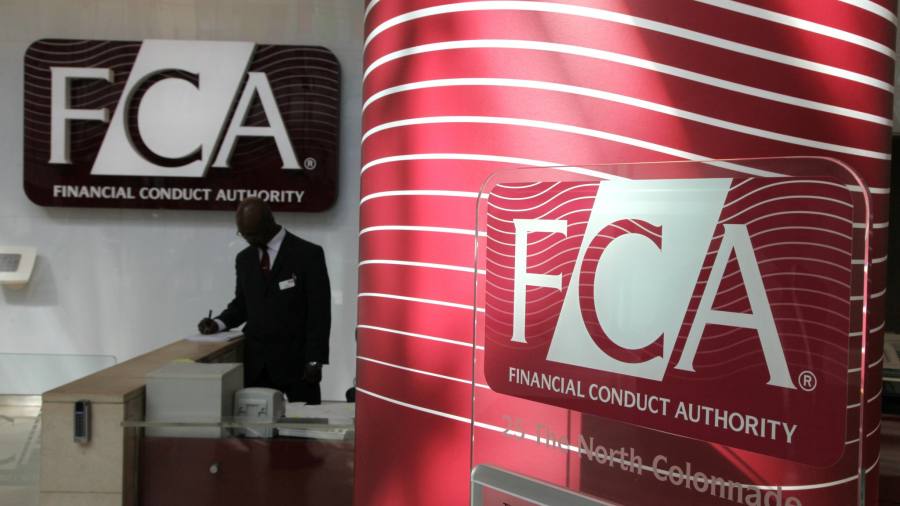With the new UK fiscal year commencement on April 1, it is appropriate to review the record fines issued by The Financial Conduct Authority in the previous 2018 fiscal year.
The total amount of FCA fines reached £80.2 million during 2018 compared to only £900,000 during the previous year that was levied on ten individuals opposed to the previous fiscal year’s eight.
This, in part, is due to the changes in the European regulatory landscape with MiFID II and GDPR coming into effect.
The FCA stated that its approach would be sensible and proportionate when policing MiFID II and GDPR as long as companies made genuine attempts to update their systems to meet the new requirements for FCA Recordkeeping.
James Edward Staley
The FCA fined James Edward Staley for breaches of Individual Conduct Rule 2 (COCON 2.1.2) related to conflicts of interest (whistleblowing, CEO accountability) in the retail bank sector. This is after Mr. Staley attempted to identify the author of an anonymous letter that Barclays received on June 2016, which contains several allegations; some of which concerned Mr. Staley himself. Due to the conflict of interest, there was a risk that he wouldn’t be able to exercise impartial judgment about how Barclays should respond.
The Financial Conduct Authority imposed on Mr. James Staley a financial penalty of £321,200 according to section 66 of the Financial Services and Markets Act 2000.
Mr. Staley agreed to settle at an early stage of the Authority’s investigation and therefore qualified for a 30% (stage 1) discount under the Authority’s executive settlement procedures. Were it not for this discount; the Authority would have imposed a financial penalty of £458,900 on Mr. Staley.
Darren Colvin Cummings
The FCA fined Darren Colvin Cummings due to breaches of the Statements of Principle and Code of Practice for Approved Persons Principle 1, or APER 1. Mr. Cummings was also fined concerning violations of Fit and Proper Test for Approved Persons and specified significant-harm functions, or FIT, section of the Authority’s Handbook of rules and guidance or the Handbook relating to a lack of fitness and/propriety in the general insurance and mediation sector.
Darren Colvin Cummings fabricated or caused the fabrication of two documents, both of which resemble and purport to be an SPS issued by the CII to Mr. Cummings (the SPS 1 and SPS 2 documents). This led to the misleading impression that he had attained the appropriate qualifications to provide investment advice to retail customers, knowingly provided the SPS 1 and SPS 2 documents, and caused another person to provide the SPS 1 document, to the Authority to mislead the Authority. Mr. Cummings also knowingly made numerous false and misleading statements to the Authority concerning his qualifications and experience.
The FCA imposed the following:
(1) Withdrawal of the approval granted to Mr. Cummings to perform the CF1 (Director) controlled function for DCC Financial, under section 63 of the Act;
(2) A financial penalty of £29,300 under section 66 of the Financial Services and Markets Act 2000; and
(3) Ordered the prohibition, under section 56 of the Financial Services and Markets Act 2000, of Mr Cummings from performing any function about any regulated activities carried on by an authorised person, exempt person, or exempt professional firm.
The FCA also gave Mr. Cummings the Decision Notice, which notified Mr. Cummings of the above actions taken against him, but he did not refer the matter to the Tribunal within 28 days of the date on which the Decision Notice was given to him.
John Lawrence Radford
The FCA fined John Lawrence Radford concerning breaches of Statements of Principle and Code of Practice for Approved Persons Principle 6, 7 and Client Assets section of the Handbook relating to client money/assets and lack of fitness/propriety in the general insurance and protection sector. Mr. Radford lacked adequate understanding of the Client Money Rules and failed to ensure that One Call Insurance Services Limited, or One Call, where he served as a CF1 director, protected the clients’ money. One Call spent sums from the client account to finance its capital requirements, pay directors, and, indirectly, capitalize on a connected company.
The FCA imposed the following:
(1) A financial penalty of £468,600; and
(2) An order against Mr. Radford, according to section 56 of the Act, prohibiting him from having any responsibility for client money and/or insurer money to any regulated activity carried on by any authorised person, exempt person or exempt professional firm. This order took effect from the date of issue of this Notice.
Mr. Radford agreed to settle at an early stage of the Authority’s investigation. Mr. Radford, therefore, qualified for a 30% (stage 1) discount under the Authority’s executive settlement procedures. Were it not for this discount; the Authority would have imposed a financial penalty of £669,531 on Mr. Radford.
Alistair Rae Burns
The FCA fined Alistair Rae Burns concerning breaches of APER 7 and FIT related to conflicts of interest, a lack of fitness/propriety and miss-selling in the investment adviser and pensions sector. The FCA notified Mr. Burns back on July 22, 2016 that it had decided to impose a fine on him after he had failed to take reasonable steps to ensure that Tailor Made Independent Limited or TMI complied with the relevant requirements of the regulatory system.
The FCA imposed the following:
(1) A financial penalty of £60,000, according to section 66 of the Financial Services and Markets Act 2000 (“the Act”);
(2) An order, which took effect from the date of the notice, prohibiting Mr. Burns from performing any senior management function and any significant influence function concerning any regulated activities carried on by any authorised or exempt persons, or exempt professional firm, according to section 56 of the Act.
Angela Burns
The FCA fined Angela Burns concerning breaches by a non-executive director of APER 1 for failing to declare conflicts of interest and FIT for lack of fitness/propriety. Ms. Burns breached APER 1 by participating in discussions with Vanguard Asset Management Limited without informing the boards of two mutual societies that she was simultaneously soliciting a NED position and consulting work from Vanguard.
The FCA imposed the following:
(1) An order prohibiting Angela Burns from performing a CF2 (non executive director) function about any regulated activity carried on by any authorised or exempt persons, or exempt professional firm under section 56 of the Financial Services and Markets Act (“Act”); and
(2) A financial penalty of £20,000 on Angela Burns under section 66 of the Act.
Mark John Owen
The FCA fined Mark John Owen concerning breaches by an executive director of APER 1, APER 4 and FIT related to a lack of fitness/propriety and failing to act on information appropriately in the asset management sector. A decision notice from November 7, 2014 notified Mr. Owen that he was to be fined for failing to act with integrity and for failing to deal with the FCA openly and cooperatively.
The FCA imposed the following:
(1) A financial penalty of £3,240,787, under section 66 of the Financial Services and Markets Act 2000 (“the Act”); and
(2) An order which took effect from the date of this Final Notice, according to section 56 of the Act, prohibiting Mr. Owen from performing any function concerning any regulated activity carried on by an authorised person, exempt person or exempt professional firm.
Stewart Owen Ford
The FCA fined Stewart Owen Ford concerning breaches by an executive director of APER 1, APER 4 and FIT related to miss-selling, failing to be open and co-operative, a lack of fitness/propriety, conflicts of interest, and failing to act on information appropriately in the asset management sector. A decision notice from November 7, 2014 notified Mr. Ford that it decided to fine him for failing to act with integrity and for failing roto deal with the FCA openly and cooperatively.
The FCA imposed the following:
(1) Under section 66 of the Financial Services and Markets Act 2000 (“the Act”), a financial penalty of £76 million; and
(2) An order which took effect from the date of this Final Notice, according to section 56 of the Act, prohibiting Mr. Ford from performing any function concerning any regulated activity carried on by an authorised person, exempt person or exempt professional firm.
Paul Stephany
The FCA fined Paul Stephany concerning breaches on Statement of Principle 2 and 3 relating to failing to observe proper standards of market conduct and failing to act with due skill, care, and diligence in the asset management sector. Mr. Stephany contacted other fund managers at competitor firms and attempted to influence them to cap their orders at the same price limit as his own orders. Mr. Stephany risked undermining the integrity of the market and failed to observe proper standards of market conduct.
The FCA FINED Mr. Stephany a financial penalty of £32,200 as a result.
Many companies seeking to achieve compliance amidst the changing regulatory landscape face challenges to archive text messages, capture voice calls, and meet with FCA recordkeeping requirements and be WhatsApp recordkeeping compliant. The difficulty on the side of such companies is related to a lack of investment in the recordkeeping and supervision processes, still using legacy archiving platforms that complied with the regulatory landscape without accounting for the evolution in regulations.
A large number of firms are currently under investigation by the FCA, with a significant number being looked at for violation of MiFID II.
Some of the cases the FCA fined last fiscal year faced difficulties in cooperating openly and cooperatively with the Authority because of obsolete systems.However, possessing newer recordkeeping platforms could have resolved these issues quickly, with a possibility of not incurring FCA fines.
Investing in technologies that can render a firm compliant with modern regulations – while also having the capability to process the data that modern businesses now generate– is essential for companies to avoid risks. Firms and their employees may face unnecessary fines when not equipped with newer archiving technologies. Employing newer archiving platforms also allow investigations to speed up due to the ease of use in the data processing.
The TeleMessage Mobile Archiver effectively addresses compliance, regulatory, eDiscovery response requirements and reduces risk across various industry under the FCA and MiFID text archiving voice recording regulation. TeleMessage captures and records mobile content, including SMS, MMS, voice calls, social media, and WhatsApp Chats from corporate or BYOD mobile phones. Messages are securely and reliably retained within the TeleMessage servers or forwarded to an archiving data storage vendor of your choice.
Our mobile archiving products securely capture content from mobile carriers and mobile devices for a variety of ownership models (BYOD, CYOD, and employer-issued). With our multiple archiving methods, you can always find the right tools or blend for your text message archiving and voice call recording requirements:
TeleMessage offers cross-carrier and international mobile text and calls archiving for Corporate and BYOD phones. Contact us to try our mobile archiving products today.


